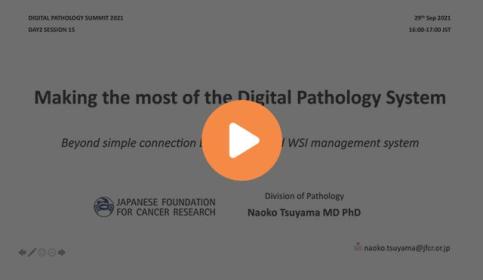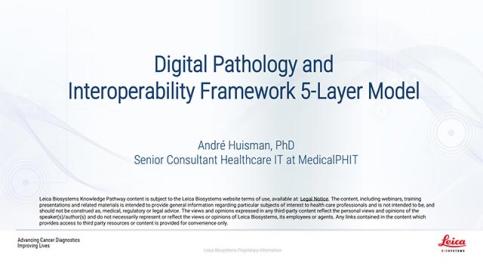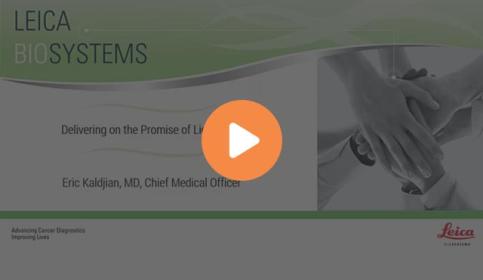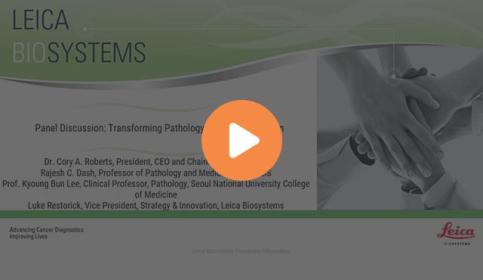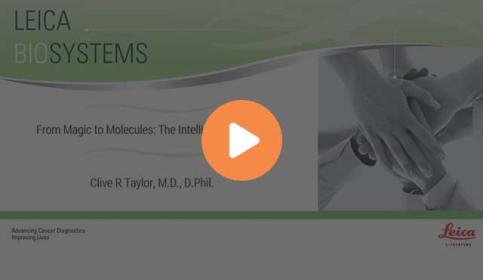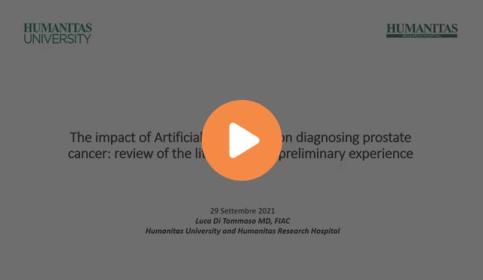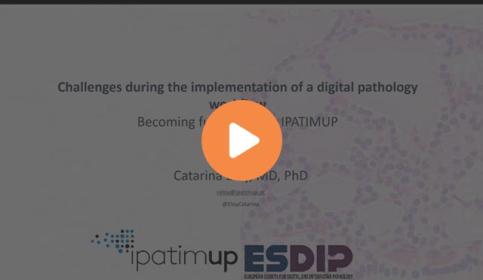Digital Pathology & AI
Adopting digital pathology enables pathologists to manage and interpret information generated from a digitized glass slide. Coupled with AI tools, pathologists can benefit from efficiencies in their workflow. Learn how to start transforming your lab with guidance from experts in the field.
Making the most of the Digital Pathology System: Beyond a simple connection between LIS and IMS
Dr. Naoko Tsuyama, MD, PhD
Digital Pathology and Interoperability - Success Factors for the Implementation of Digital Pathology
Dr. André Huisman, PhD
Download this guide for best practices when planning to integrate digital pathology in the laboratory. The Interoperability Framework applies a 5-layer model connecting organizational strategies, processes, information, application, and IT infrastructure.
Delivering on the Promise of Liquid Biopsy
Eric Kaldjian, MD, Chief Medical Officer
The potential for non-invasive tests that provide equivalent research and diagnostic value as can be obtained from tissue biopsies is real, but not yet realized. Tissue biopsies allow for identification, phenotyping and molecular analysis of cancer and...
Panel Discussion: Transforming Pathology Through Innovation
Dr. Cory A. Roberts, President, CEO and Chairman of the Board
Rajesh C. Dash, Professor of Pathology and Medical Director LIS
Prof. Kyoung Bun Lee, Clinical Professor, Pathology, Seoul National University College of Medicine
Luke Restorick
Curious about what the future holds? Listen to our global panel of expert pathologists and learn more about AI, digital pathology, and how future innovations may lead the way.
From Magic to Molecules: The Intelligent Microscope
Clive R. Taylor, M.D., D.Phil.
The content of this webinar will encompass detailed technical descriptions of novel and state-of-the-art methods to decalcify tissue samples that will be embedded in paraffin or for frozen sectioning for molecular and nucleic acid analysis for basic research...
The Impact of Artificial Intelligence on Diagnosing Prostate Cancer: Review of the Literature and Preliminary Experience
Prof. Luca Di Tommaso, MD, FIAC
Challenges During the Implementation of a Digital Pathology Workflow - Becoming Fully Digital at IPATIMUP
Catarina Eloy, MD, PhD
Image Reliability is the Foundation of Computational Pathology
Prof. Kyoung Bun Lee, Clinical Professor, Pathology, Seoul National University College of Medicine
Personalized Pathology – A Vision for the Future
Molecular pathology has the potential to create health service efficiencies and improve outcomes for cancer patients, we just have to imagine a world in which molecular pathology & personalized medicine is the norm – then create it, says Dr. Matthew Clarke.
